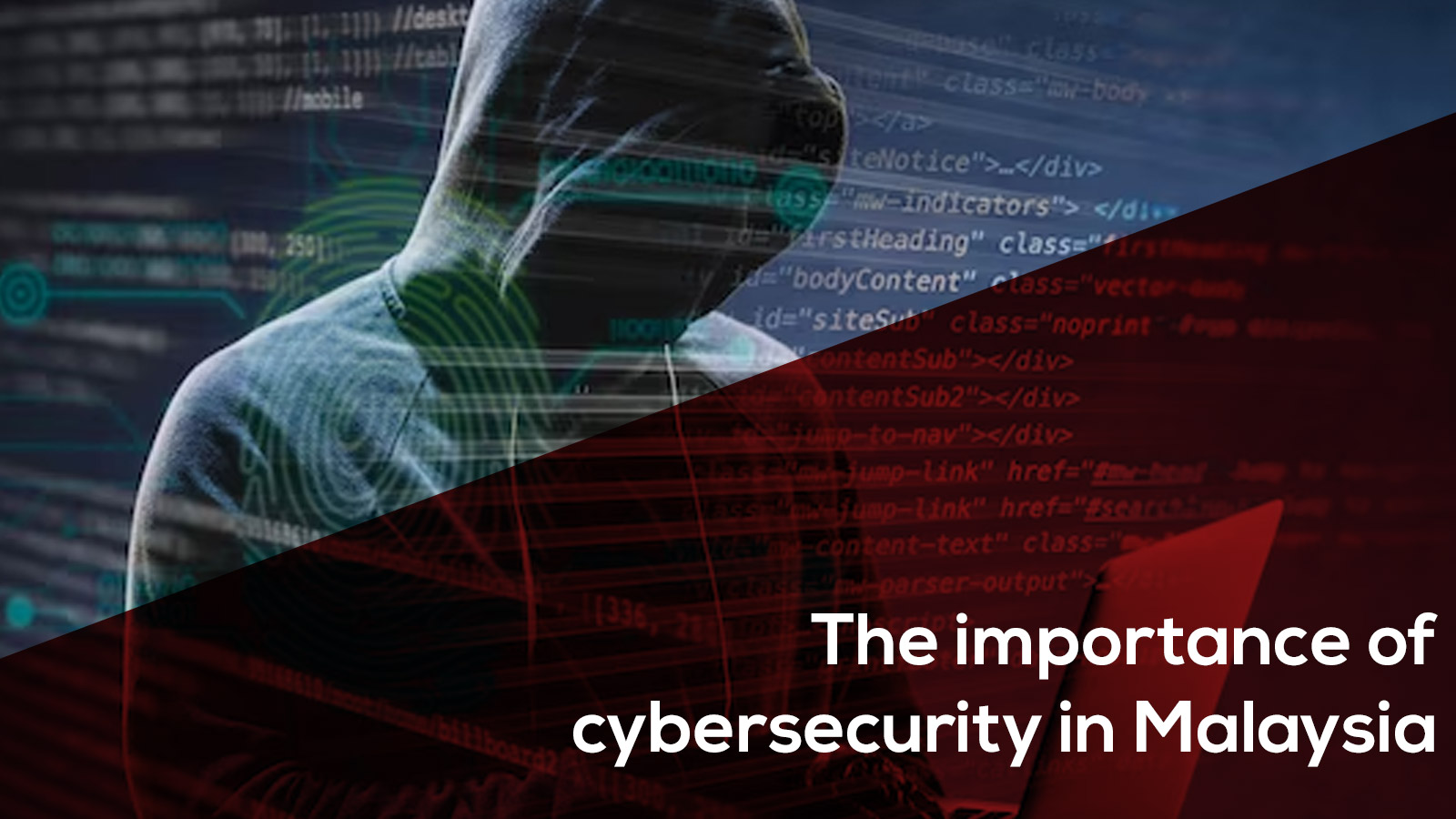Introduction
Malaysia is rapidly becoming a hub for technological innovation and economic growth. As the nation embraces digital transformation, the importance of cybersecurity has never been more critical.
This blog post explores the current state of cybersecurity in Malaysia, highlighting the challenges it faces and suggesting robust Enterprise Resource Planning (ERP) security measures as a solution.
The Current State of Cybersecurity in Malaysia
Malaysia, like many other nations, is not resistant to the growing threat of cyberattacks. In recent years, there has been a notable increase in the frequency and sophistication of cyber threats targeting individuals, businesses, and even government institutions. According to the Malaysian Computer Emergency Response Team (MyCERT), there were over 4,000 reported incidents of cyber threats in 2023, a 22% increase from the previous year.
One of the primary challenges faced by Malaysia’s cybersecurity landscape is the evolving nature of cyber threats. Cybercriminals are leveraging advanced tactics such as ransomware, phishing attacks, and advanced persistent threats (APTs) to compromise sensitive data and disrupt critical infrastructure. The financial sector, in particular, has been a prime target, with a 35% increase in cyber incidents reported in the banking and financial services sector.
The Importance of Cybersecurity in Malaysia
Economic Impact: Cybersecurity incidents can have severe economic consequences. A successful cyberattack can result in financial losses, damage to reputation, and a downturn in investor confidence. A report by CyberSecurity Malaysia estimates that cybercrime costs the nation approximately RM 4.4 billion in 2023, highlighting the economic significance of a robust cybersecurity framework.
Protection of Critical Infrastructure: With the increasing reliance on digital technologies, critical infrastructure such as power grids, telecommunications, and healthcare systems are vulnerable to cyber threats.
Safeguarding Personal Data: In the era of big data, the protection of personal information is paramount. The rising number of data breaches in Malaysia raises concerns about the security of individuals’ sensitive data. A breach can lead to identity theft, financial fraud, and other activities, showing the need for powerful cybersecurity measures.
Addressing the Challenges: Robust ERP Security Measures
Organizations must prioritize the implementation of robust ERP security measures against cybercrime. ERP systems play a central role in managing an organization’s critical business processes, making them a prime target for cybercriminals. Here are key measures that can be implemented to enhance ERP security:
Regular Audits and Vulnerability Assessments: Conducting regular audits and vulnerability assessments of ERP systems can help identify and address potential security gaps. This approach allows organizations to stay one step ahead of cyber threats.
User Training and Awareness Programs: Human error remains a significant factor in cybersecurity incidents. Implementing comprehensive user training and awareness programs can empower employees to recognize and reduce potential security threats, such as phishing attacks.
Multi-Factor Authentication (MFA): MFA adds a layer of security by requiring users to provide multiple forms of identification before accessing sensitive information. Implementing MFA for ERP systems can significantly reduce the risk of unauthorized access.
Encryption of Data: Encrypting sensitive data within ERP systems ensures that even if a breach occurs, the compromised data remains unreadable and unusable to unauthorized parties. This adds an extra layer of protection against data theft.
Regular Software Updates and Patch Management: Keeping ERP systems and associated software up-to-date is crucial in addressing known vulnerabilities. Regular updates and patch management help close potential security loopholes that cybercriminals may exploit.
Conclusion
As Malaysia continues its journey towards becoming a digital powerhouse, the importance of cybersecurity cannot be overstated. The current state of cybersecurity, marked by an increase in cyber threats, demands a comprehensive approach to safeguarding digital assets. By implementing robust ERP security measures and fostering a cybersecurity-conscious culture, Malaysia can mitigate the risks posed by cyber threats, ensuring a secure and resilient digital future. Businesses, government agencies, and individuals must collaborate in building a cybersecurity ecosystem that can effectively prevent cyber threats and protect the nation’s digital prosperity.
Frequently Asked Questions (FAQs)
Why is cybersecurity important in Malaysia?
Cybersecurity is crucial in Malaysia to safeguard against the rising threat of cyberattacks. With the increasing reliance on digital technologies, the nation faces economic losses, threats to critical infrastructure, and risks to personal data. A robust cybersecurity framework is essential to protect against these challenges.
What is the current state of cybersecurity in Malaysia?
The current state of cybersecurity in Malaysia is marked by a significant increase in cyber threats. In 2023, there were over 4,000 reported incidents. The financial sector, in particular, has seen a rise in cyber incidents, emphasizing the need for heightened security measures.
How does cybercrime impact Malaysia’s economy?
Cybercrime has a substantial economic impact on Malaysia. In 2023, it cost the nation approximately RM 4.4 billion. The financial losses, damage to reputation, and reduced investor confidence underscore the economic significance of a robust cybersecurity framework.
Why is the protection of critical infrastructure important?
Critical infrastructure, such as power grids and healthcare systems, is vulnerable to cyber threats. A successful cyberattack on these systems could have catastrophic consequences, affecting both the economy and the well-being of the population. Protecting critical infrastructure is essential for national security.
How does cybersecurity protect personal data in Malaysia?
In the era of big data, protecting personal information is crucial. Cybersecurity measures, such as encryption and stringent access controls, help prevent unauthorized access and data breaches. This safeguards individuals’ sensitive data, reducing the risk of identity theft and financial fraud.
What are ERP security measures, and why are they important?
Enterprise Resource Planning (ERP) security measures are steps taken to secure the central systems managing an organization’s critical business processes. They are vital because ERP systems are prime targets for cybercriminals. Implementing measures like regular audits, user training, and encryption enhances the overall security of these systems.
How do regular audits and vulnerability assessments improve ERP security?
Regular audits and vulnerability assessments help identify and address potential security gaps in ERP systems. By proactively identifying vulnerabilities, organizations can take corrective measures, stay ahead of cyber threats, and ensure the overall resilience of their ERP infrastructure.
Why are user training and awareness important for ERP security?
Human error is a significant factor in cybersecurity incidents. User training and awareness programs empower employees to recognize and mitigate security threats, such as phishing attacks. Educated users are more likely to follow security protocols, reducing the risk of unauthorized access.
How does multi-factor authentication (MFA) enhance ERP security?
MFA adds an extra layer of security by requiring users to provide multiple forms of identification. Implementing MFA for ERP systems reduces the risk of unauthorized access, as even if credentials are compromised, an additional authentication step is necessary for system entry.
Why is encryption of data important for ERP security?
Encrypting sensitive data within ERP systems ensures that even if a breach occurs, the compromised data remains unreadable and unusable to unauthorized parties. It adds a layer of protection, particularly in the event of a security breach.
How do regular software updates and patch management contribute to ERP security?
Regular software updates and patch management are crucial in addressing known vulnerabilities in ERP systems. By keeping the software up-to-date, organizations can close potential security loopholes that cybercriminals may exploit, maintaining the overall integrity of the ERP infrastructure.
What is the role of collaboration in building a strong cybersecurity ecosystem in Malaysia?
Collaboration is key to building a strong cybersecurity ecosystem in Malaysia. Businesses, government agencies, and individuals must work together to share threat intelligence, and best practices, and collectively strengthen the nation’s defenses against evolving cyber threats. This collaborative effort is essential for a secure digital future.








